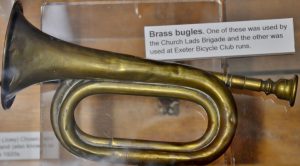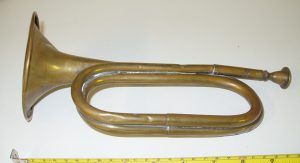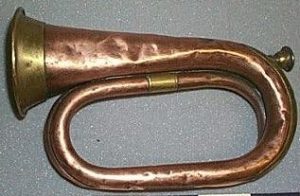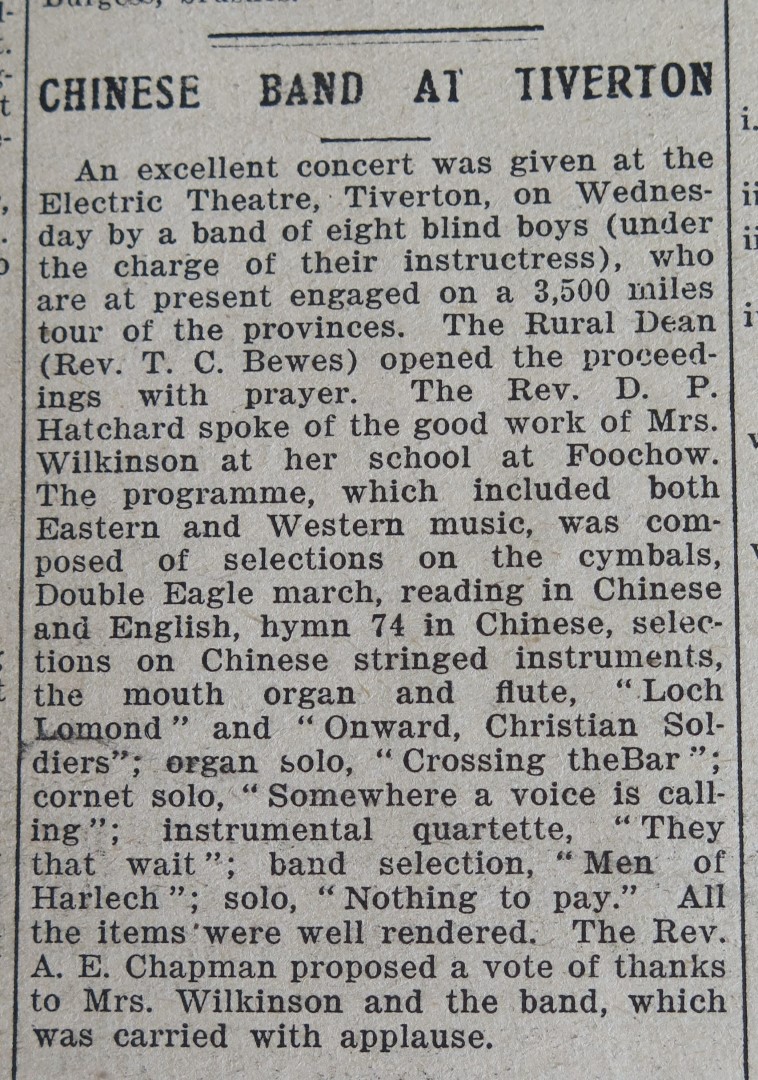This press cutting leads to a train of events which began in 1898. Amy Oxley Wilkinson was an Australian nurse and missionary. She had been in China only a few years when she founded a school for boys with little or no sight in Foochow (now written Fuzhou). Amy also adapted Braille for use in the local dialect and in Mandarin. The school expanded rapidly and music was an important part of the boys’ education. The school band started touring, initially in their own province, then throughout China. In 1922, the Anglican Church in the UK extended an invitation to the brass band, the tour was a great success and was extended to last for 22 months. As well as appearing in Tiverton, they travelled to all corners of the UK and even performed for the Royal family. In 1920, Amy Wilkinson was awarded the Order of the Precious Brilliant Golden Grain by the Chinese Republic and the School which she founded, still exists today.
Looking for brass instruments in the Museum’s collection, we have found three bugles.

The bugles were used in a variety of settings (from top to bottom). The first was used by a member of a Church Lads’ Brigade, the second was the rallying cry for the Exeter Cycling Club and the third was deployed in the First World War.

Two of them (1 and 3) are on display on the ground floor of the Museum. Amongst the other musical items in this part of the Museum are a harmonium and a Broadwood ‘square’ piano. A chest which belonged to the Bampton Town Band displays a few other musical instruments. The musical life in Tiverton is thriving today with opportunities for instrumentalists and singers alike.

Written and researched by museum volunteer Sue.

